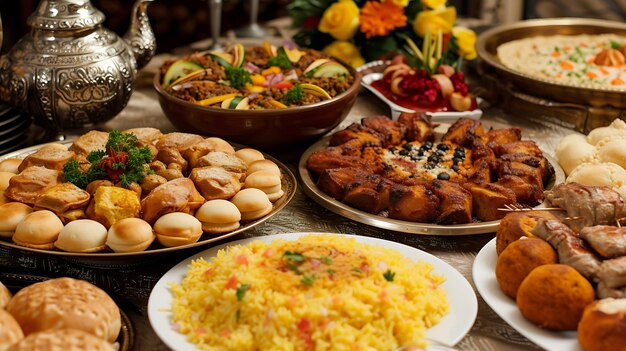During Ramadan, the pre-dawn meal, or Suhoor, plays a crucial role in ensuring that individuals maintain energy levels throughout the day of fasting. A well-balanced Suhoor not only helps sustain physical energy but also supports mental clarity and hydration. Here are some helpful tips and ideas for making a nutritious and filling Suhoor to help you get through the fasting day.
Why Suhoor Is Important
Suhoor is the final meal before the fasting period begins at dawn. It provides the essential nutrients, hydration, and energy required to sustain you throughout the day. Skipping this meal can lead to dehydration, fatigue, and difficulty concentrating during the day. Therefore, choosing foods that are high in fiber, protein, and healthy fats will provide long-lasting energy and reduce hunger during the day.
Key Nutrients for Suhoor
When preparing your Suhoor, it’s important to include the following nutrients:
- Complex Carbohydrates: These are slowly digested and provide sustained energy. Opt for whole grains like oats, brown rice, or whole wheat bread.
- Proteins: Protein helps repair muscles and keeps you feeling full longer. Include sources such as eggs, yogurt, cheese, and legumes like lentils or chickpeas.
- Healthy Fats: Healthy fats provide essential nutrients and slow down digestion, helping you stay full for longer. Avocados, nuts, and olive oil are great choices.
- Fruits and Vegetables: These are high in water content and provide vital vitamins and minerals. Including fruits like bananas, apples, and berries, as well as vegetables like cucumbers, tomatoes, and spinach, will also help you stay hydrated.
Hydration is Key
Alongside nutrient-rich foods, hydration is equally important. Dehydration can cause fatigue, headaches, and dizziness during the day. Drink plenty of water during Suhoor to ensure your body is well-hydrated for the fast. Avoid caffeinated beverages, as they can increase urination and lead to dehydration. Herbal teas or water infused with fruits like lemon or cucumber are great alternatives.
Suhoor Meal Ideas
- Oats with Fruits and Nuts: A bowl of oats topped with berries, banana slices, and a handful of almonds or walnuts offers a perfect balance of fiber, protein, and healthy fats.
- Vegetable and Cheese Omelet: Eggs provide protein and healthy fats, while adding vegetables like spinach, mushrooms, and tomatoes boosts the nutrient content.
- Whole Wheat Bread with Avocado: Whole wheat bread provides complex carbs, while avocado offers healthy fats. Pair this with a side of yogurt for added protein.
- Chickpea Salad: A chickpea salad with cucumbers, tomatoes, and olive oil is a refreshing and filling option, offering both protein and hydration.
- Smoothie: Blend Greek yogurt, spinach, banana, and chia seeds for a nutritious smoothie that combines protein, fiber, and vitamins in one drink.
Foods to Avoid
While preparing Suhoor, avoid foods that can lead to rapid digestion and increase hunger throughout the day. These include:
- Sugary Foods: Foods high in sugar, like pastries or sugary cereals, can cause a spike in blood sugar followed by a crash, leading to hunger sooner.
- Spicy or Salty Foods: These can make you thirsty throughout the day and increase your chances of dehydration.
- Caffeine: While it may provide a short-term energy boost, caffeine increases urination, leading to dehydration.
A nutritious Suhoor is essential for maintaining energy, hydration, and overall well-being during Ramadan. By focusing on complex carbs, protein, healthy fats, and hydrating foods, you can set yourself up for a successful and comfortable fast. Remember that what you eat during Suhoor has a direct impact on how you will feel throughout the day, so take the time to prepare wholesome, nourishing meals.









